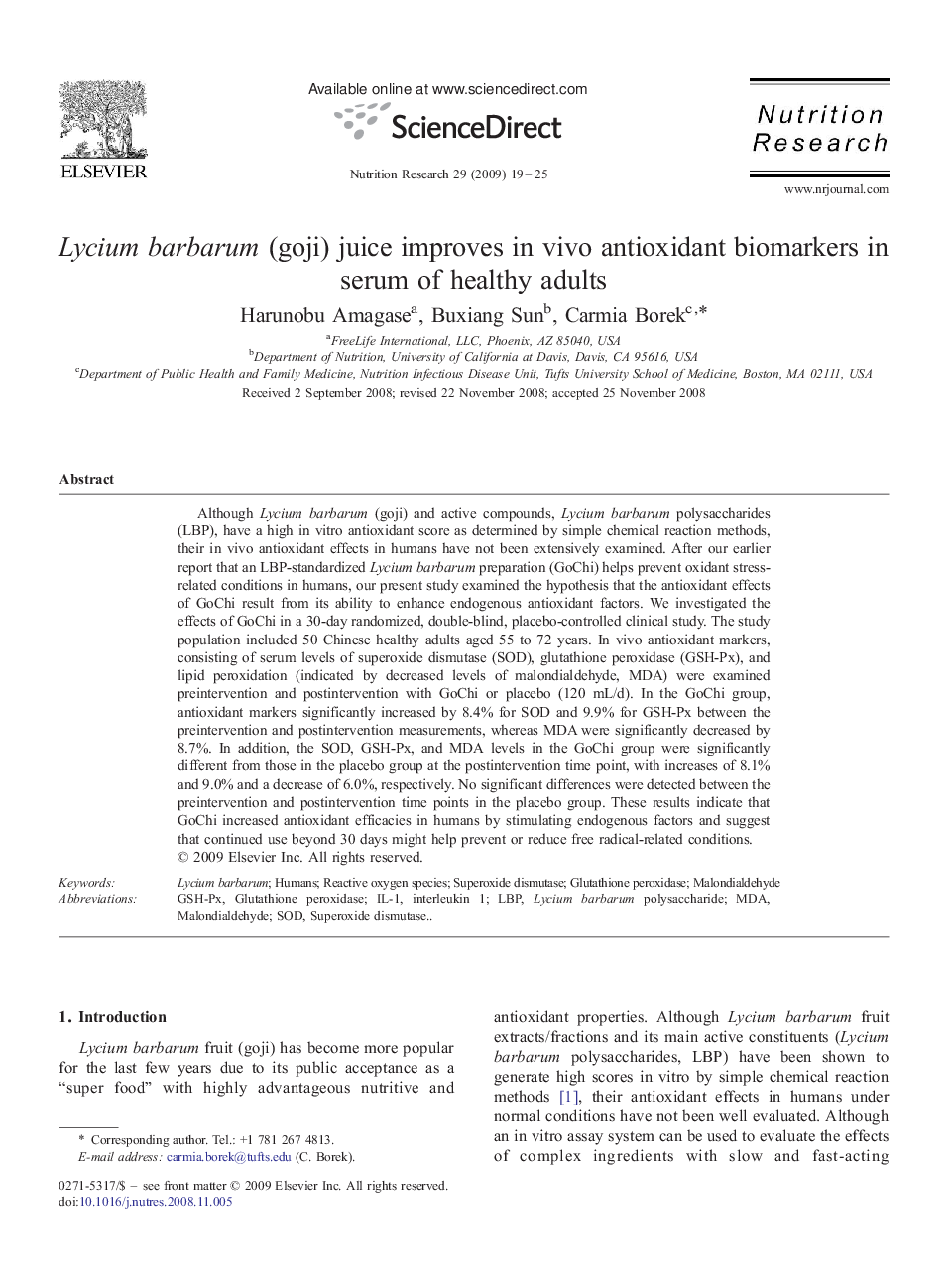| Article ID | Journal | Published Year | Pages | File Type |
|---|---|---|---|---|
| 2809598 | Nutrition Research | 2009 | 7 Pages |
Although Lycium barbarum (goji) and active compounds, Lycium barbarum polysaccharides (LBP), have a high in vitro antioxidant score as determined by simple chemical reaction methods, their in vivo antioxidant effects in humans have not been extensively examined. After our earlier report that an LBP-standardized Lycium barbarum preparation (GoChi) helps prevent oxidant stress-related conditions in humans, our present study examined the hypothesis that the antioxidant effects of GoChi result from its ability to enhance endogenous antioxidant factors. We investigated the effects of GoChi in a 30-day randomized, double-blind, placebo-controlled clinical study. The study population included 50 Chinese healthy adults aged 55 to 72 years. In vivo antioxidant markers, consisting of serum levels of superoxide dismutase (SOD), glutathione peroxidase (GSH-Px), and lipid peroxidation (indicated by decreased levels of malondialdehyde, MDA) were examined preintervention and postintervention with GoChi or placebo (120 mL/d). In the GoChi group, antioxidant markers significantly increased by 8.4% for SOD and 9.9% for GSH-Px between the preintervention and postintervention measurements, whereas MDA were significantly decreased by 8.7%. In addition, the SOD, GSH-Px, and MDA levels in the GoChi group were significantly different from those in the placebo group at the postintervention time point, with increases of 8.1% and 9.0% and a decrease of 6.0%, respectively. No significant differences were detected between the preintervention and postintervention time points in the placebo group. These results indicate that GoChi increased antioxidant efficacies in humans by stimulating endogenous factors and suggest that continued use beyond 30 days might help prevent or reduce free radical-related conditions.
